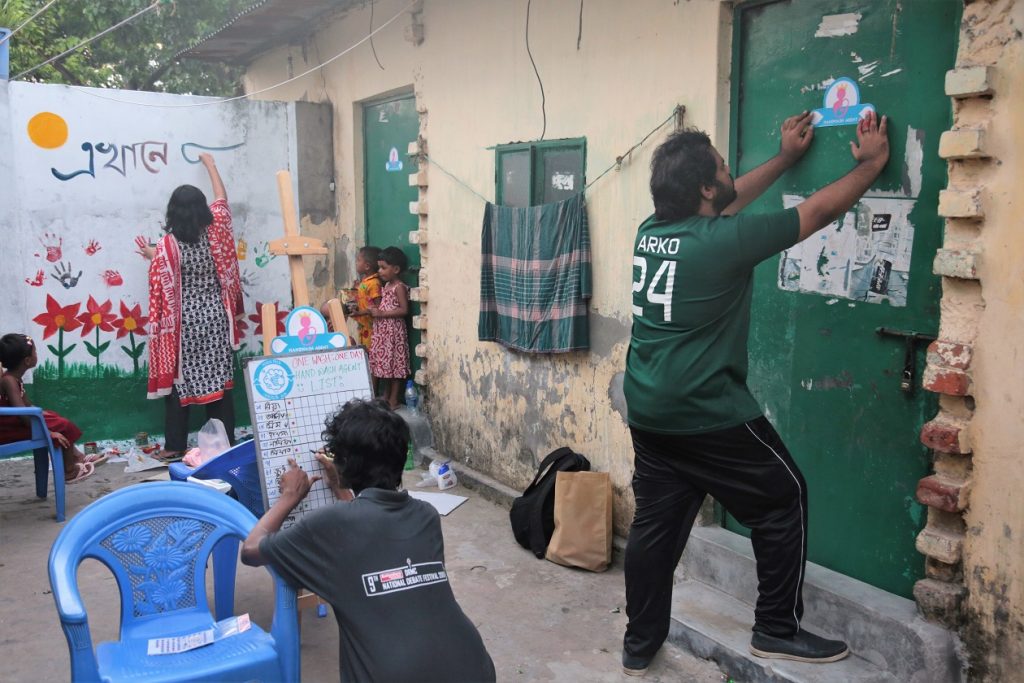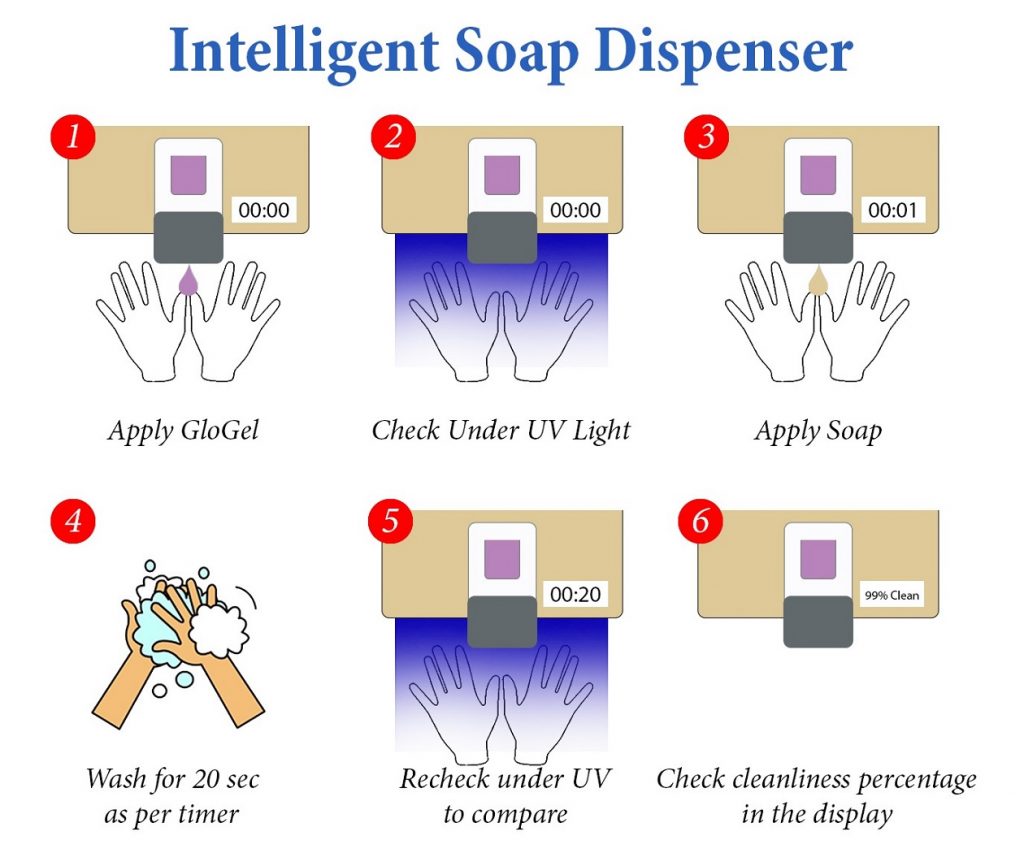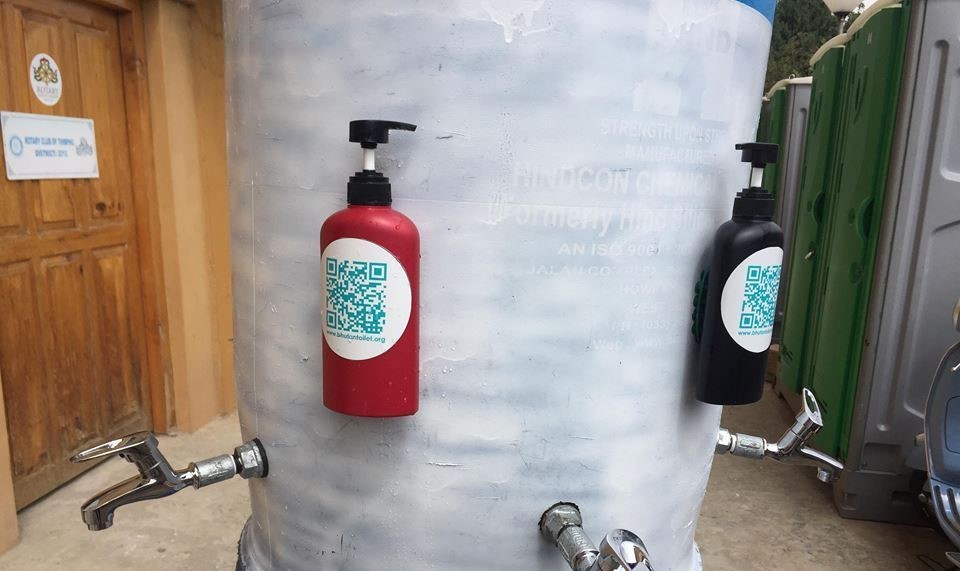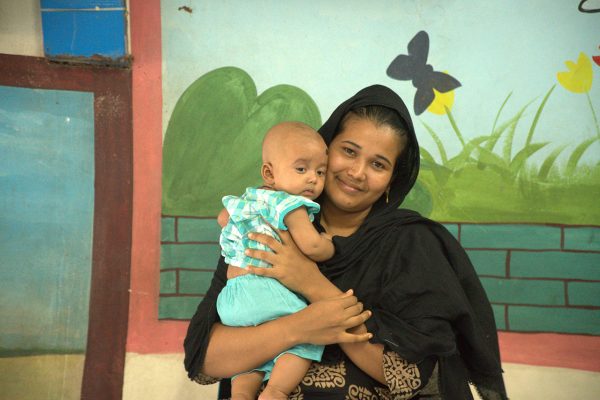Reading Time: 4 minutes
We are celebrating Global Handwashing Day today with 12 amazing ideas that made it to the finale of WASH Innovation Challenge, organised by BRAC and UNICEF.
In the 90s, UNICEF revolutionised how sanitation was perceived in the rural south with the very famous Meena cartoons, where an adorable parrot Mithu changed our lives with one line.
While that campaign was successful in shifting people’s habits in sanitation, diarrhoea still accounts for 8% of 5.6 million deaths of children under 5 years of age, with pneumonia accounting for a further 16% – that’s 896,000 – more than the population of Qatar!
What is unfortunate is that these innocent lives could be saved with one simple solution.
HAND WASHING + SOAP = SAVED LIVES
Many of these infectious diseases can be prevented by simply washing hands with soap. Research studies demonstrate that hand washing interventions reduce the risk of acute respiratory infection in children aged under 5 years by half, and the risk of diarrhoea by 42-47%.
The solution is so simple, yet why aren’t we fully adopting it?
Mothers and caregivers are very busy people who often forget to wash their hands during critical times: before preparing food, before feeding their child, after defecation, and after changing their baby’s nappy. There is also a lack of understanding of how crucial it is to wash hands with soap.
With this in mind, BRAC and UNICEF launched the WASH Innovation Challenge this year, to identify creative solutions from eight countries across South Asia to promote the practice of hand washing with soap.
Over 800 incredible ideas poured in. We shortlisted 55 participants and sent them to test out their ideas in a Human Centred Design-based intensive exercise: the 5 Step WATER Challenge. Our participants then wowed us once more with their rigorous prototyping endeavours; choosing the finalists for the three categories was no easy feat.
Bangles and calendars: Innovations to change behaviour
How can we nudge mothers and caregivers in South Asia to change their behaviour and always wash their hands with soap at critical times? We expected campaigns offering environmental cues – for example, visuals or sounds to encourage this habit, while also tailoring to local contexts.

Two teams from Bangladesh – Team Mash and Clean Churi – offered wearables as interventions for mothers and caregivers. While Team Mash engaged their target audience via visual wristbands, Farhat Chowdhury’s team prompted hand washing via the tinkling of metal beads of the Clean Churi – a bangle to be worn by caregivers. Further visual cues involved an interactive calendar to serve as reminders in households, implemented by Ranit Das’s team from India.
Last but not least, the One Wash is One Day campaign immersed their audience in cues. Shuprova Arko’s team developed a resonating central message targeting mothers living in urban slums: Every mother adds a day to their children’s lives every time they wash their hands with soap; 1 wash = 1 day.

From barrels to apps: Technology for hand washing
How might we develop technology to make hand washing easier and more fun for mothers and caregivers during critical times?
This technology could take many forms – from a mobile application to a physical setup. We were looking for creative technology-driven solutions; we were not disappointed.
Taking advantage of the ubiquity of smartphones, Arman Hossain’s team from Bangladesh suggested a Hand Wash Call Reminder – an app to serve up prompts straight to your phone before meals thrice a day. For a more physical setup, Team SWAT from Bangladesh proposed a kit comprising of a harmless fluorescent lotion to make germs glow red under UV light, and an auto anti-microbial soap dispenser to screen hands for germs using UV light, allowing detection of clean hands at critical times.

Using simpler technology – reused plastic barrels with five taps attached to them – Passang Tshering’s team from Bhutan introduced the Barrel Handwash Station to solve three major challenges: lack of infrastructure, inaccessibility of facility locations, and unreliable water supply.

The Barrel Handwash Station
Mahlaqa Kamran’s team from Pakistan considered portability and accessibility for rural communities when designing Wottle, a unique water bottle that captures the full functionality of a handwashing station through four essential features: a water unit, a soap unit, an optional mixing unit, and a tissue lid. Wottle aims to bring handwashing facilities to the consumer, instead of other way around.
Caught clean-handed: Innovative systems to sustainably monitor hand washing
With sustainability in mind, how might we monitor and measure hand washing practices? A monitoring and measuring system allows us to understand whether hand washing with soap is actually being practiced.
With a more flexible target audience for this category – the designed systems could focus on a schools, health centres, or public places in general. In this category, the solutions had a clear focus on smart, real-time monitoring systems using sensors and Internet of Things (IoT), where data is logged onto a central server for further processing.
EasyWash from Bangladesh coupled their system with incentives for students in schools. Shiroma Weerathunge’s team from Sri Lanka proposed a system for schools, homes and health centres, that provides correct hand washing steps, encourages users through education and happy washing moments, and tracks their status through a website and a mobile app.

EasyWash couples their system with incentives for students.
WashMetrics from India acts as a cost-effective alternative to resource-intensive traditional practices, by providing contextual, personalised, multi-channel and real-time audiovisual nudges. Finally, Spectra from Bangladesh presented Smart Fitness Band to track hand washing among healthcare professionals and prevent hospital-acquired infections (HAIs). The smart bands can also prospectively serve as fitness monitors for other individuals.
All in all, in accordance with the values of Global Handwashing Day, the WASH Innovation Challenge has provided a tremendous platform for young entrepreneurs across South Asia to design and test creative ways to make this life-saving habit a daily practice.
Anika Haque is an intern of BRAC’s social innovation lab.





